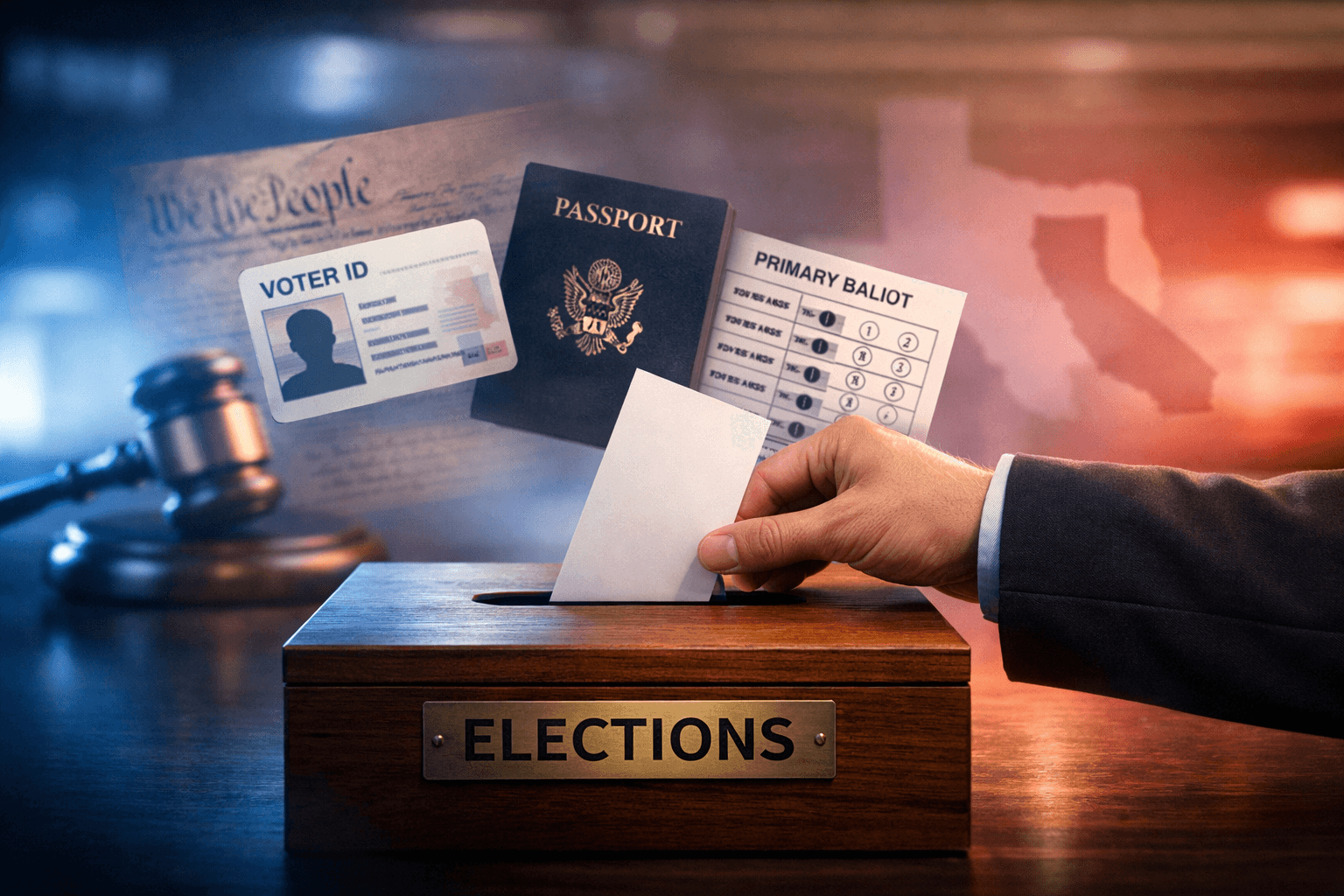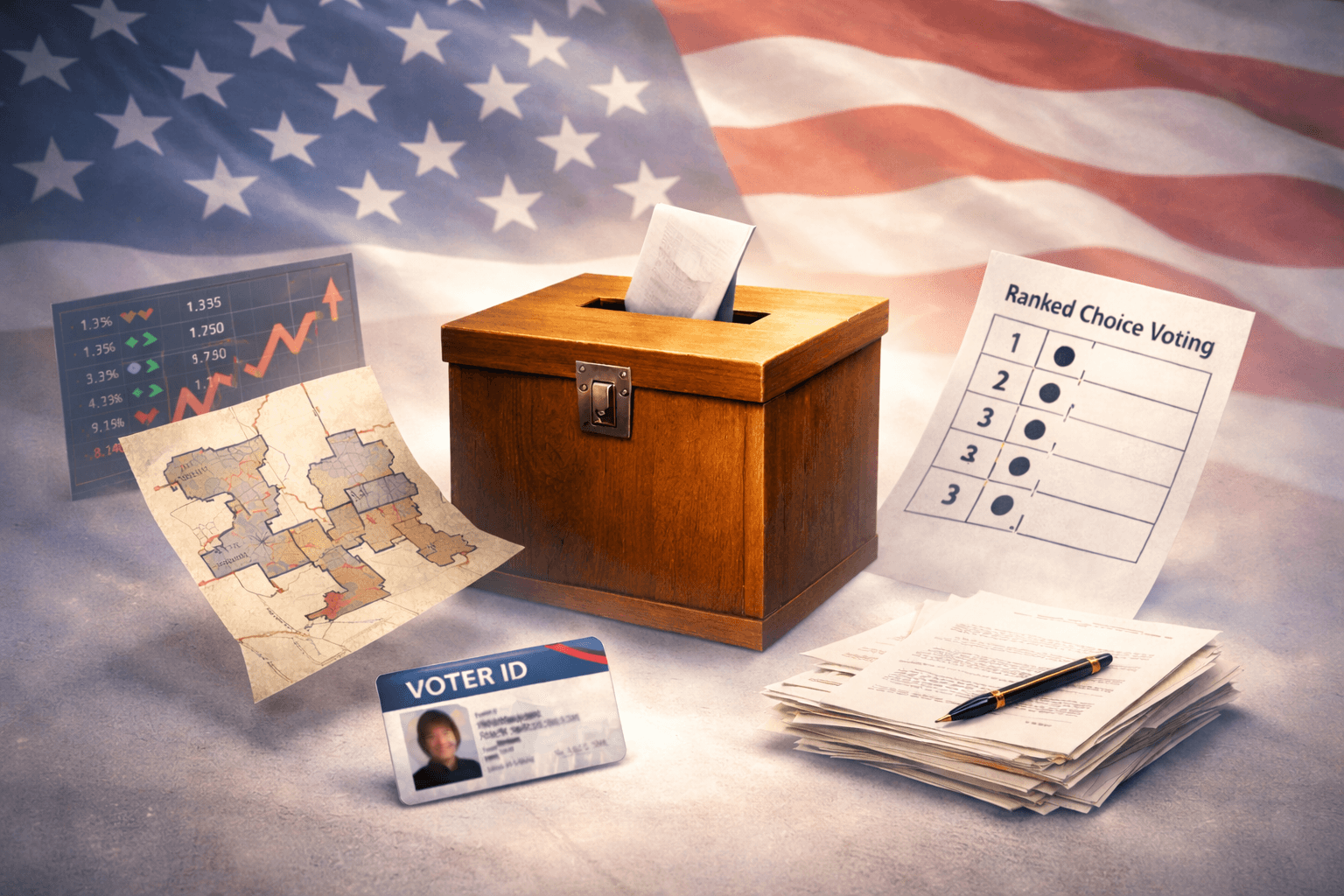Retired Attorney Takes Voting Rights Case All the Way to the Supreme Court -- By Himself

The next big voting rights case the Supreme Court of the United States could consider wasn’t filed by the ACLU, the League of Women Voters, Common Cause, or another household name when it comes to voter rights.
The writ of certiorari for what could result in a landmark voting rights decision was litigated single-handedly all the way to SCOTUS by a retired attorney in Florida named Michael J. Polelle.
Polelle is challenging the constitutionality of Florida's closed primary election system, which bars over 3.4 million registered independent voters from participating in taxpayer-funded primaries – elections that have the most consequential impact on electoral outcomes.
"Unlike in authoritarian regimes, the right to a meaningful vote is a right of membership in the United States. This is called citizenship. It is not a right of membership in any particular political party," he said in remarks to IVN News.
He did not file the lawsuit at the behest of any group. He does not have any organization funding the litigation. And yet, he has taken his case for equal independent voting rights from Florida to District appellate court and now to the U.S. Supreme Court.
In his case, the Eleventh Circuit Court of Appeals acknowledged that closed primaries in Florida force independent voters to make a “hard choice” between forfeiting their vote and changing their party affiliation against their own beliefs.
"Political parties are throwing a party alright...at taxpayers' expense. Independent thinkers are not invited," Polelle said.
He even got the Eleventh Circuit to admit that this partisan scheme subjects independent voters to “indignity” and that barring them from primary elections hinders their ability to participate equally in general elections.
But the Court wasn’t ready to rule that closed primaries were unconstitutional, citing a line of historical cases like Nader. Importantly, the cases cited have all answered a question of whether an independent voter can vote in a political party’s primary.
Polelle is asking a more fundamental question: where independent voters can participate in the state’s primary elections process, altogether.
"The principal goal of a political party is to acquire power and maintain self-preservation. Occasionally this goal coincides with the public interest," he said.
The Appellate Court held that the violation of Polelle’s rights were “minimal,” claiming that voters can “simply” join a party and then re-register and become independent again after the primary.
Now, Polelle has petitioned his case to the highest court in the land, and this effort has not gone unnoticed. On Monday, the Independent Voter Project, Open Primaries, and the Forward Party filed a joint Amici brief to the Supreme Court in support of Polelle’s lawsuit.
In the Amici, participants argue that under the Supreme Court’s own precedent in Harper v. Virginia State Board. of Elections, the degree of infringement on a citizen’s fundamental right as a condition of voting is irrelevant.
“Forcing an independent voter to join a private political organization whose platform and values they do not share as a condition of voting at an integral stage of the election process is itself a severe burden, even if the voter is permitted to later change their party registration,” they argue.
“The right to vote is fundamental, and the right not to associate is equally protected. Conditioning one on surrendering the other is constitutionally impermissible,” the brief further states, asserting that the reasoning of the lower court “turned the First Amendment on its head.”
The appellate court also suggested that voters can simply “convince [their] representatives or [their] fellow Floridians of the State’s error,” ignoring a system in which candidates know the most consequential vote to their re-election is in the primary.
“But Floridians have already expressed their indignation with forced political association. In 2020, Florida voters considered Amendment 3, which would have replaced the closed primary with a nonpartisan, top-two primary for state offices,” the Amici states.
A significant majority of Floridians, 57% of the electorate, voted in favor of a nonpartisan primary. That is a higher percentage than either major party’s Presidential candidate received that election year. The measure failed only because Florida imposes a uniquely high 60% supermajority requirement for constitutional amendment.”
Polelle’s lawsuit joins a legal fight that now spans more than a decade.
In 2014, the Independent Voter Project challenged the constitutionality of New Jersey’s closed primary system, as well as California’s unconstitutional use of semi-closed primaries in presidential elections.
IVP has already petitioned the Supreme Court to hear both of these cases:
Both petitions present the same core question as this case: whether the right to vote and to meaningful representation in publicly funded elections derives from citizenship or from compelled association with a political party.”
This year, Open Primaries filed a lawsuit in Maryland and has supported legal efforts against closed primaries in Oregon, Pennsylvania, and Wyoming, which reflect “a nationwide movement of litigation aimed at ending the exclusion of independent voters from decisive elections.”
“The American electorate is rapidly changing, and independents are now the largest group of voters in the country. It’s time for courts to begin to define their rights to freedom of speech and association. Mr. Polelle’s case, and our brief in support, ask the Supreme Court to do just that. We are taking the case of independent voter rights to court across the country. This is just the beginning.”
“When it comes to primary elections, the courts have focused exclusively on the rights of parties. But what about the rights of voters? These are OUR elections,” said Jeremy Gruber, senior vice president of Open Primaries.
Many of these cases have had more than a single plaintiff and some of them have had significant backing, like the lawsuit out of Pennsylvania where CNN anchor Michael Smerconish is one of the plaintiffs.
But in Florida, it is just one man asking a simple question that the Supreme Court has never answered directly: Does the right to vote at an integral stage of a publicly funded election derive from citizenship, or from membership in a political party?
 Shawn Griffiths
Shawn Griffiths






